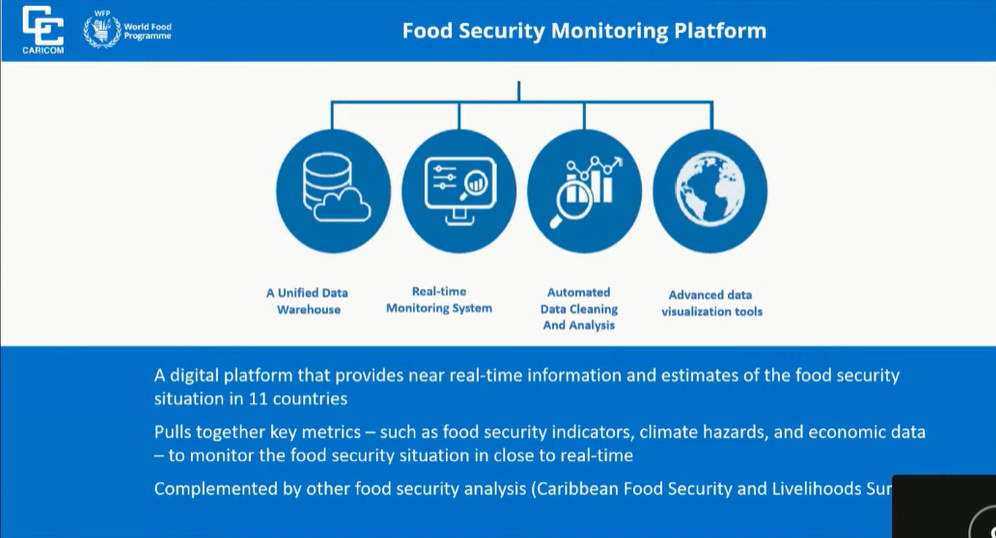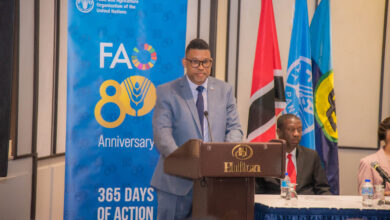In a significant step toward bolstering food security in the Region, the Caribbean Community (CARICOM), in partnership with the United Nations World Food Programme (WFP), launched the Caribbean Real-Time Food Security Monitoring Dashboard. The digital platform, unveiled on Thursday, 10 April 2025, offers live updates on food security conditions across 11 Caribbean nations: Barbados, Belize, Dominica, Grenada, Guyana, Haiti, Jamaica, Saint Lucia, St. Vincent and the Grenadines, Suriname, and Trinidad and Tobago.
Data is being collected through random digit dialing to consumers. The surveys will collect data on demographics, food security, livelihoods, coping strategies, local market conditions, and respondents’ primary concerns. This approach supports rich collection to provide valuable insights into the diverse issues people are facing across different linguistic and cultural backgrounds.
The Dashboard also shows other factors related to food security, such as weather, hazards risks, population and macro-economic situation. This will contribute to more informed national planning and more strategic engagement with international development agencies. Governments will be better positioned to identify opportunities for programmes and measures to enhance food security and develop more resilient food systems.
“The Caribbean Real-Time Food Security Monitoring Dashboard is more than just a tool; it is a symbol of resilience and determination to foster a food-secure future for the Community. While the platform monitors food security, we remain committed to the broader goal of achieving food and nutrition security for the Region. I look forward to seeing the invaluable insights from the Dashboard, as we work to strengthen our agri-food systems and advance the well-being of CARICOM citizens,” said Dr. Carla Barnett, CARICOM Secretary-General said in remarks at the launch.
Mr. Brian Bogart, WFP Caribbean Multi-Country Office Representative and Country Director, who also spoke at the launch, said:
“WFP remains deeply committed to supporting the Caribbean in its efforts to improve food security. This Dashboard reflects our continued collaboration with CARICOM and national governments, and it reinforces our commitment to building resilient food systems and advancing the goal of zero hunger in the region.”
Mr. Shaun Baugh, Programme Manager, Agricultural and Agro-Industrial Development at the CARICOM Secretariat, encouraged the regional public’s participation in the data collection exercise and the dissemination of information on the Dashboard.
In 2024, the Caribbean Food Security and Livelihoods survey found that 43 percent of people were facing food insecurity. Climate-related events, global economic shifts and supply chain disruptions have negatively impacted the cost of and access to food in recent years. The information gathered from the dashboard will allow governments and institutional decision-makers to quickly identify changes in the food security situation and make more informed and timely decisions to support those most in need. With the increasing threat of natural hazards to the region, the dashboard’s data can be integrated with risk and hazard monitoring systems. This will strengthen anticipatory action and emergency preparedness efforts, ensuring timely support to vulnerable groups.
The Dashboard will provide quick access to food security data to facilitate trend analysis. Over time, as more robust data becomes available, quarterly factsheets will be produced to summarise the information for quick access. The dashboard is made possible through support from the Government of Canada and European Union.






